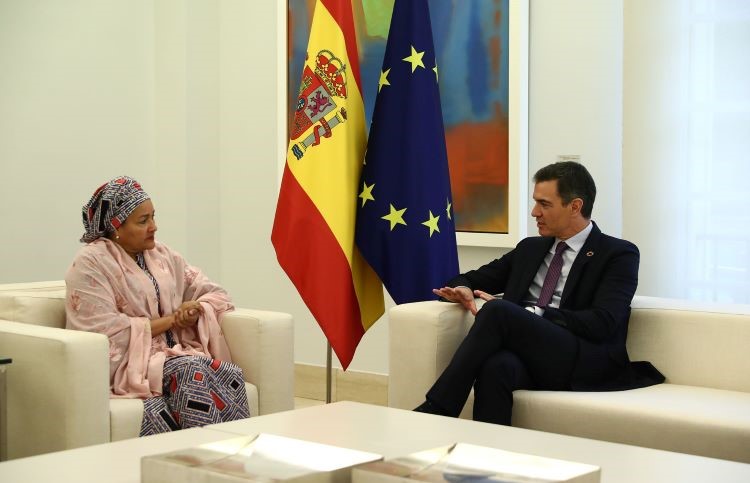The Diplomat
Last Tuesday, the Council of Ministers authorized a contribution of more than ten million euros to Ecuador to finance a water and sanitation program in rural communities.
Specifically, the 10,171,444.92 euros, charged to the Cooperation Fund for Water and Sanitation, will go to the Development Bank of Ecuador to finance the Cooperation Program for the promotion of human rights to water and sanitation in rural communities.
The purpose of this program is threefold: on the one hand, to contribute to extending the human right to water and sanitation by promoting safe and sustainable access to drinking water and basic sanitation services, especially in the most vulnerable and underserved areas, which will reduce the rate of diarrheal diseases and chronic child malnutrition. On the other hand, to strengthen public, comprehensive and participatory management of water resources. And finally, to establish sustainable systems that are resilient to the effects of climate change and provide safe access to drinking water and sanitation services.
The Cooperation Fund for Water and Sanitation (FCAS) was created in 2007 to finance actions, within the international development cooperation policy, aimed at promoting and improving access to water and sanitation services for the citizens of Latin American countries.
According to the Government, the water, sanitation and hygiene sector “continues to be key in the current pandemic situation (COVID-19), due to its direct relationship with health”, as a group of UN experts has ruled: “COVID-19 cannot be stopped without providing water to people in vulnerable situations”.
The 2009 Royal Decree on the organization and operation of the Cooperation Fund for Water and Sanitation states that projects will be financed on a co-financing basis with the beneficiary countries and sets funding percentages based on criteria of level of development and needs for access to drinking water and sanitation. Based on these criteria, the Republic of Ecuador belongs to Group Two, which implies that the Fund will assume 80% of the financing on a non-reimbursable basis, while the beneficiary will contribute the amount corresponding to 20%.
Although the 2022 Budget only contemplated operations under the FCAS of up to 60 million euros, the door was left open to non-reimbursable operations if they were financed, according to the Government, “with extraordinary resources from the reimbursements of bilateral programs that could not be fully or partially carried out, as well as from surpluses of programs already completed”. In this case, the FCAS has been able to draw on more than thirteen million euros in refunds received by the Official Credit Institute (ICO) in its account at the Bank of Spain between 2021 and 2022, which has allowed this non-refundable operation.







